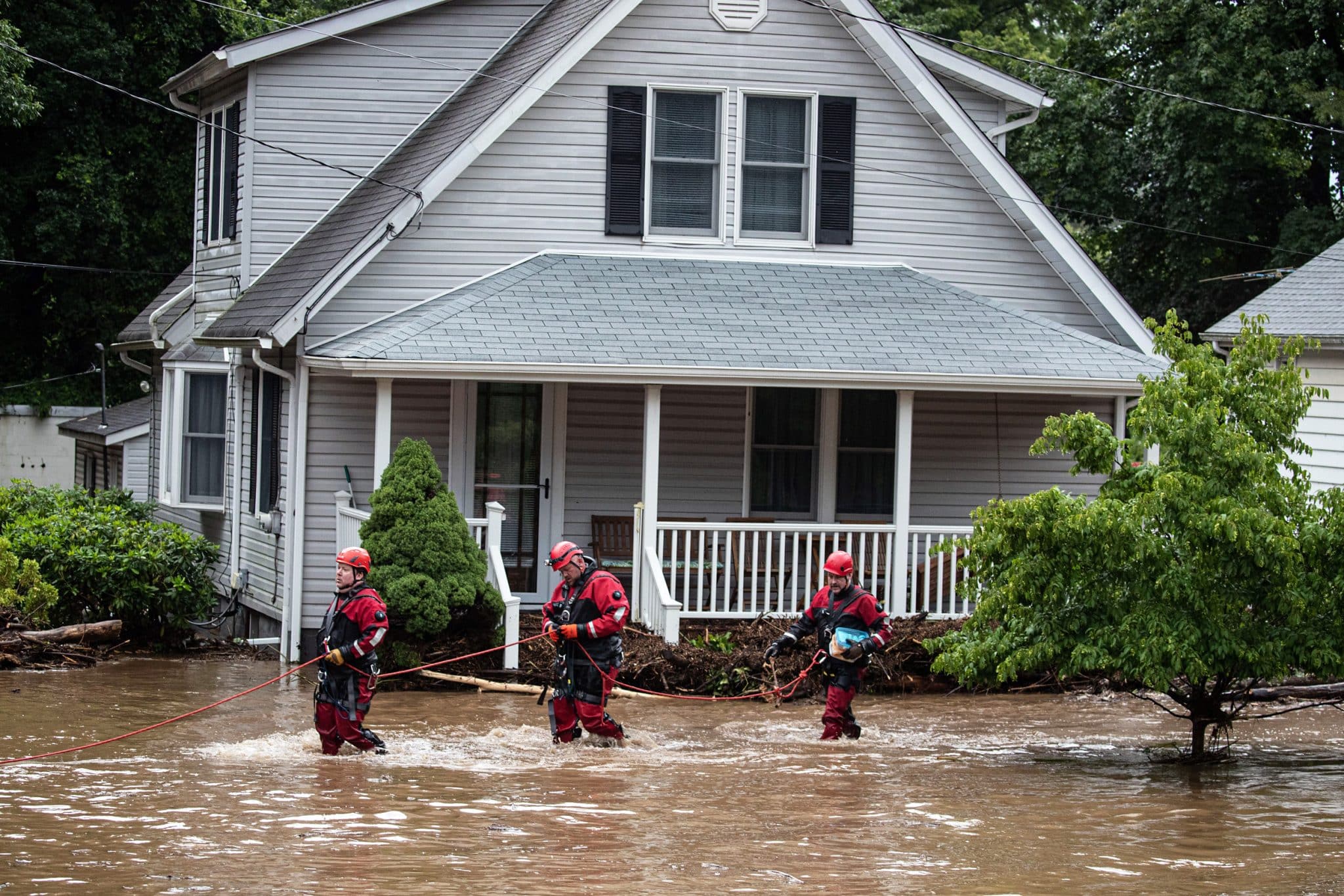News
Nova Scotia Flooding Leaves Nearly 18,000 Households Without Power

Heavy rain lashed Nova Scotia Canada, flooding roads, knocking out power, and prompting families to flee their homes as officials feared a dam would fail. The heavy rain in Nova Scotia comes only weeks after the province was devastated by Canada’s catastrophic wildfire season.
“Some of the same residents affected by the wildfires are now dealing with flooding,” Halifax Councillor Lisa Blackburn told reporters.
On Friday, the rain began in Nova Scotia. Parts of the province had already received nearly six inches of rain as of Saturday morning. Rain dropped at a rate of more than an inch per hour in some regions.
“The ground, which is already near saturation, has little ability to absorb additional rainfall,” Environment Canada said in a statement.
On Saturday, rain will fall between 1-4 inches across central and eastern Nova Scotia. The storm is anticipated to linger until late afternoon in central Nova Scotia and until late evening in the east.
According to Nova Scotia Power, nearly 18,000 households were without power as of Saturday morning.
Because of concerns that a nearby dam may soon overflow, the Nova Scotia government issued an evacuation order for individuals living near the Saint Croix River system. Residents around the Mersey River have been asked to prepare for an evacuation.
As a result of flash flooding, many highways in Halifax, Nova Scotia’s capital, were closed, and residents were advised to avoid driving.
According to preliminary accounts, roughly 150 homes in Halifax were destroyed by the storm, and Blackburn expects that number to rise.
“Due to flooding, numerous roads have been washed out and remain closed.” The Halifax Regional Municipality posted on Twitter, “There are abandoned cars on roads and highways causing dangerous conditions.”
On Friday night and Saturday morning, search and rescue teams were deployed by boat in Halifax to locate anybody who may have become stranded in the flood.
According to Nova Scotia officials, wildfires in Canada forced thousands of individuals to abandon their homes and damaged approximately 200 homes or structures between May and June. As of Saturday, flames were still raging across Western Canada.
Wildfires in Alberta Canada
Authorities say the pilot of a helicopter that crashed during wildfire battling operations in Canada’s Alberta province has died.
Investigators are on their way to the crash scene, which occurred south-east of Manning in the Peace River area.
The incident comes only days after two wildfire fighters were killed in the line of duty. Almost 900 fires are blazing across Canada, with 553 of them labelled “out of control.”
The helicopter pilot, a 41-year-old man from Whitecourt, Alberta, was assisting with “bucketing” operations, which include the use of specialist buckets hanging by cables to extinguish fires, according to officials.
“I’m heartbroken to learn that another Canadian fighting wildfires has lost their life,” Prime Minister Justin Trudeau tweeted. “We’ll never forget his service to his province and our country.”
According to a representative for the Transportation Safety Board of Canada (TSB), authorities initially received transmissions from an emergency beacon at the collision site at 18:15 local time (00:15 GMT).
“It collided with the ground during firefighting operations,” said Chris Krepski of the TSB.
“I’m not sure what phase it would have been, whether it would have been picking up or releasing water,” he added. “That is typically what we would try to find out.”
Two hours later, officers arrived at the crash scene, which is inaccessible by road. After being airlifted to Peace River Airport, the pilot was declared deceased. It comes only days after two wildfire fighters died battling blazes in the Northwest Territories and British Columbia.
“We mourn their death, but we celebrate what they were doing, and their dedication to their communities and countries,” environment minister Steven Guilbeault said on Thursday, before word of the helicopter crash broke.
Canada has broken its own record for the most land burned by wildfires in a single year.
Wildfires have destroyed almost 24 million acres (10 million hectares) of land this year, an area roughly the size of Iceland or the US state of Indiana.
“We know that climate change makes wildfire season worse,” Mr Guilbeault continued. “We’re working hard to keep people safe this year while also preparing for future years.”
Climate warming increases the likelihood of hot, dry weather that fuels wildfires. The world has already warmed by around 1.1 degrees Celsius since the beginning of the industrial age, and temperatures will continue to rise unless governments around the world drastically reduce emissions.
This year’s fire smoke has triggered air quality alerts across large swaths of the United States, affecting tens of millions of people.